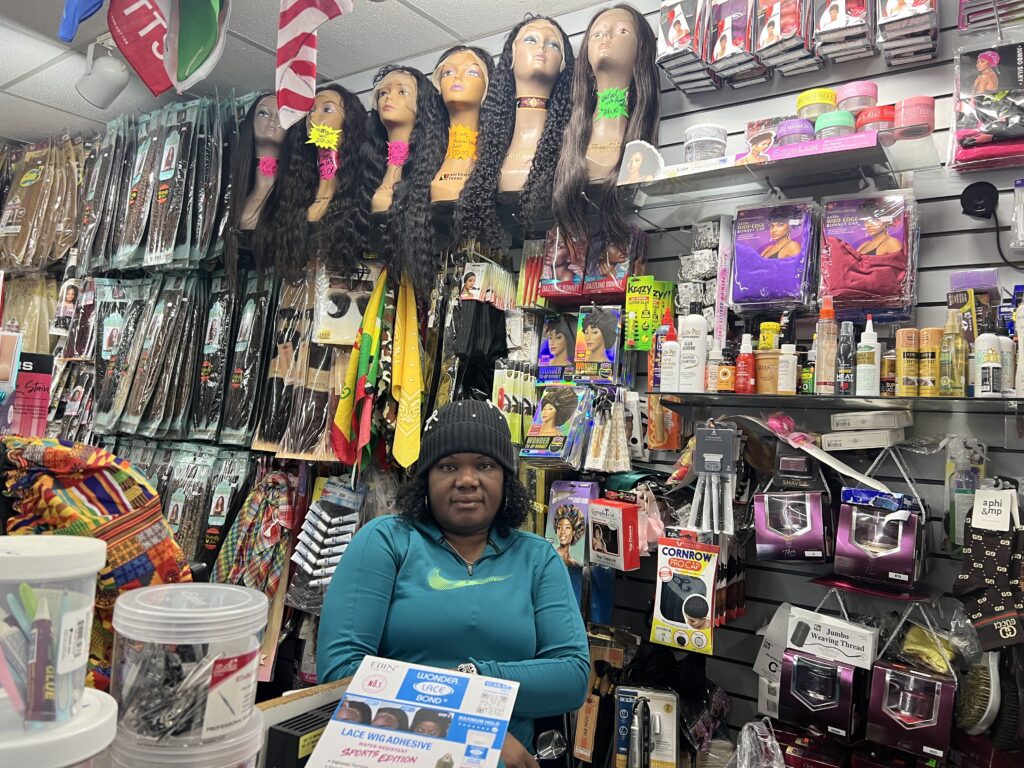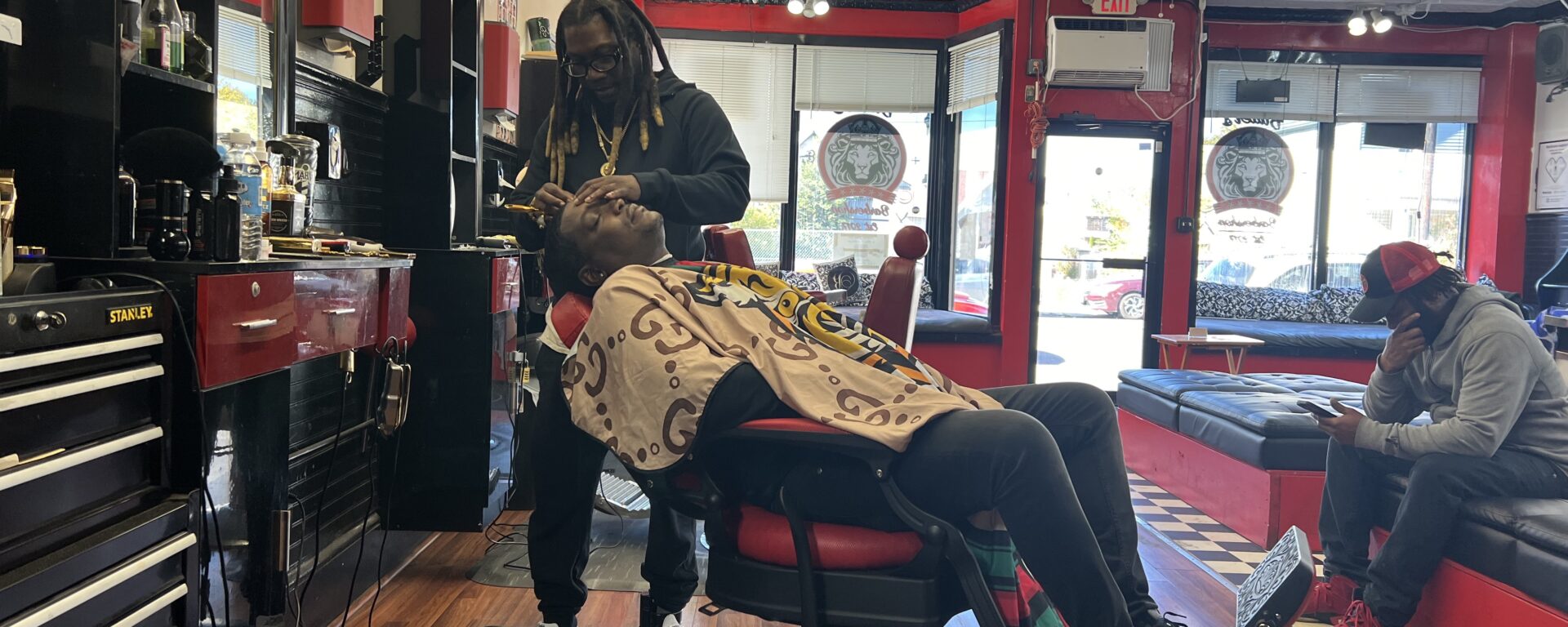Democratic presidential candidate Kamala Harris’s push to boost Black male voter support promises 1 million loans to small Black-owned businesses—but in the local economy of Scranton, Pa., many Black entrepreneurs are disillusioned by accessibility concerns of federally-issued financing.
Harris’s ‘Opportunity Agenda for Black Men’ outlines economic policy aiming to remove “historic barriers to wealth creation,” and includes forgivable loans up to $20,000 from the U.S. Small Business Administration and partnering organizations. Harris championed the plan during rally stops in Detroit, Philadelphia and Erie, Pa., earlier this month ahead of the Nov. 5 vote, with Pennsylvania one of the swing states likely to decide the 2024 election.
Former President Donald Trump leads Harris by one point in the latest Quinnipiac University Poll released on Oct. 30. Many Black small business owners in the historically Democrat-leaning hometown of current President Joe Biden are hesitant to embrace Harris’s policy, speaking from past experience applying for and even receiving federal funding.
“We have been given lip service for a very long time,” Rashida Lovely, a Black business owner and director of Newave Enterprises, a collection of small businesses that include her dance studio and coffee shop.
Lovely is a member of an affordable housing coalition that applied for $23 million in Community Change Grant from the U.S. Environmental Protection Agency to build two three-story affordable housing complexes on the south side of Scranton.
The application, which took around five months to complete and was tailored to Biden’s executive order vowing to “pursue a comprehensive approach to advancing equity for all, including people of color and others who have been historically underserved,” initially was denied because of a paperwork issue.
After correcting the documents, Lovely hopes the potential funds will allow the coalition to begin building in 2025. Though Lovely appreciates the Biden-Harris Administration’s “forethought around racial equity,” she wishes applications for federal funding programs in Scranton were easier to navigate, and that executive orders aimed to support underserved communities were prioritized more.
“Just because the president writes something down doesn’t mean that it’s going to hit the ground the way that it’s supposed to,” Lovely said.
Over the past 12 years, the share of 8(a) SBA contracts—loans for business owners who are socially and economically disadvantaged—awarded to Pennsylvanian Black-owned businesses shrank from 47% to around 29% in 2023, according to the Office of Advocacy. Companies with Black employers make up just 3.7% of small businesses recognized by the agency.
Gabriel Perez, owner of a Puerto Rican food truck business he started in 2017, expressed his skepticism about the impact of either presidential administration on small Black business owners in the area.
To Perez, Harris’ plan to build wealth for Black entrepreneurs sounds like nothing new.
“Unless you have the money to pay for people to fill out these grants for you, it’s really not that easy to get them,” Perez said.
Newave’s Lovely, the director of operations for the NEPA Black Chamber of Commerce in Scranton, said over half the businesses she works with decide not to apply for grants even though they have all the necessary documentation—they don’t want to waste time or money, she said.
“I don’t believe in it,” Anisyeme Beauty plus store owner Janilela Anderson said. “It’s a battle. Even if you apply for it, it doesn’t mean you’re going to necessarily get it.”
Anderson self-financed the start of her business and doesn’t plan on applying for any loans.
For business owners who are able to secure funding, the feat becomes a team effort that takes months of time and energy. Francine Smith, co-owner of Chef Von & Mom, recently applied for a grant from the City of Scranton through the Biden Administration’s American Rescue Plan Act of 2021, which allocated $350 billion to state and local governments for organizations including small businesses that faced hardships because of the pandemic.
Smith said the six-month process was “daunting” because of the language in the paperwork. Support from fellow local business owners Smith knew personally and employees from Scranton City Hall proved critical when filling out forms laden with technical terms she didn’t understand.
“I’m sure you’ll get a whole lot more people that would apply” if the applications were easier to understand, Smith said.

West Side Flava’s owner Calvin Phillips said it’s been easy for him to receive federal loans, but his corner store’s location in West Scranton blocks him from small business investment funds by the Qualified Opportunity Fund.
Trump’s Tax Cuts and Jobs Act of 2017 codified certain impoverished census tracts as zones individuals could invest in and receive a tax deferral on their capital gains until 2026, when the provision expires. Investors can hold their money in Opportunity Zones beyond the expiration date and still receive tax benefits. Ineligible by location, Phillips leans on grants to support his business expansion goals.
Rep. Kelly, Mike (R-Pa.) introduced a co-sponsored house bill aiming to extend the program to 2028.
Phillips received funding from the SBA in 2009 and said acquiring a federal loan wasn’t much of a hassle, but keeping up with payments can leave entrepreneurs “scraping” for money and “on the edge” for years.
Harris’s policy states loans used to start Black businesses are forgivable, but some owners like Amar Bell of Butter’s Barbershop & Salon fail to follow through on filing for forgiveness, even if they’re eligible.
“It affects my credit,” he said.
Bell’s wish in the upcoming years is to increase personnel—his 10-share barber shop employs four currently.
Bell cannot apply for any federal grants like the city’s ARPA reserve while he continues to pay off an SBA Paycheck Protection Program loan he originally entered to keep his business afloat during the pandemic. Unlike Phillips, who has ten-plus years of experience running businesses in New Jersey and Pennsylvania, many new small Black business owners are unfamiliar with the process of applying for government loans and grants.
“I don’t think any process is ever going to be perfect,” National Business Advisor to the 2020 Biden-Harris campaign and Founder of Public Private Strategies Rhett Buttle said.
Buttle said the administration “learned a lot” from the PPP on making loans and grants more accessible to small businesses, but that thorough applications are necessary to avoid fraud and misuse of funds. As of May 31, 2021, the program assisted about 826,000 Black or African American businesses in Pennsylvania.
As the presidential election nears, Black small business owners weigh their options. Even though Perez is a Democrat, his food truck provided catering to a local Republican Get Out the Vote rally with guest speaker Donald Trump Jr. on Saturday, Oct. 26.
“It’s going to be rough for the next few years no matter who becomes president,” Perez said.

